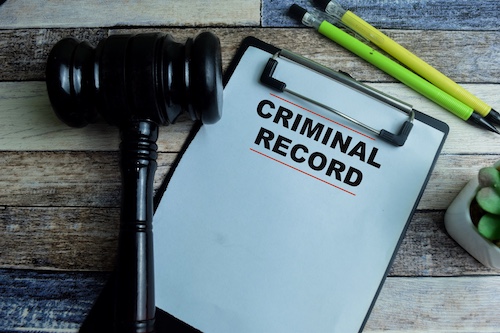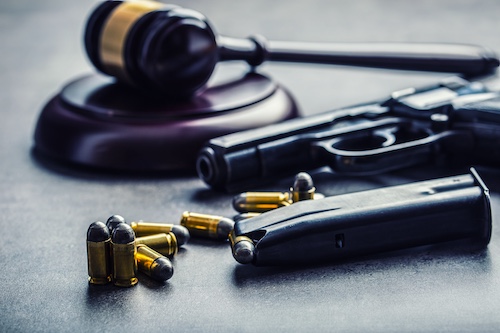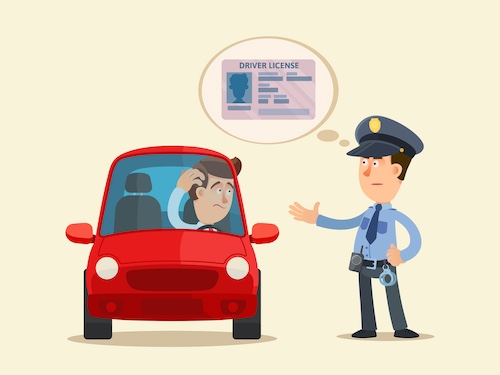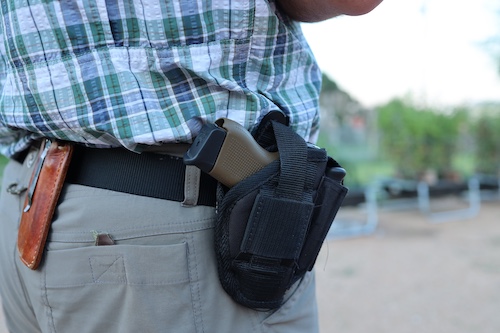Understanding the Risks of Gun Charges for Convicted Felons in Tennessee
Gun charges for convicted felons in Tennessee can bring severe penalties and lasting consequences. Federal and state laws both strictly prohibit individuals with felony convictions from possessing firearms. If you are a convicted felon and you are found with a firearm, you could face long prison sentences, heavy fines, and the loss of your civil rights.
In this blog, we will explain what happens if you are caught with a gun as a convicted felon in Tennessee, covering key laws, penalties, and how working with an experienced Nashville gun charges attorney can protect your rights.
Federal and State Legal Framework
Understanding the legal framework for firearm charges is key if you have a prior felony conviction. Tennessee law and federal law both impose strict penalties for illegal possession of a firearm by a convicted felon.
Federal Gun Laws
Federal law prohibits convicted felons from possessing firearms under 18 U.S.C. § 922(g). This federal statute also applies to other “prohibited persons,” such as those convicted of domestic violence or drug trafficking crimes. Conviction under federal law can lead to federal prison time, fines, and a permanent bar from owning firearms. The federal law applies when the firearm or ammunition has moved through interstate commerce, giving federal courts authority to prosecute these cases.
Tennessee Gun Laws
Tennessee law specifically addresses firearm possession by convicted felons in Tennessee Code Annotated § 39-17-1307(b)(1). Possession of a firearm by a convicted felon is a Class B felony if the prior felony involved a violent crime or a felony drug offense. If the prior felony did not involve violence or drugs, the charge is a Class C felony. These charges carry severe penalties, including long prison sentences and high fines.
Penalties and Felony Classifications
A Class B felony in Tennessee can result in a prison sentence from 8 to 30 years and a maximum fine of $25,000. A Class C felony carries a possible sentence of 3 to 15 years and a maximum fine of $10,000. Felony gun charges often carry mandatory minimum sentences, especially if the firearm was used in connection with a drug trafficking crime or violent crime. Prior convictions can lead to even harsher penalties.
Federal vs. State Prosecution
Federal and state prosecutors can pursue gun charges separately. The choice of whether to file federal gun charges or state charges depends on several factors, including the type of firearm and whether the firearm moved in interstate commerce. Federal gun laws and state gun laws both carry severe penalties, but federal court often involves stricter sentencing rules.
The Consequences: Criminal Charges and Penalties
Gun charges for convicted felons bring serious penalties and can affect every part of your life. Understanding the possible outcomes is important for anyone facing these charges.
Felony Classes and Sentences
In Tennessee, felony weapons charges vary by class. A Class B felony carries a prison sentence of 8 to 30 years and a maximum fine of $25,000. A Class C felony carries a sentence of 3 to 15 years and a fine up to $10,000. In some cases, charges may be classified as a Class E felony, which has a sentence of 1 to 6 years. The penalties depend on the details of the prior conviction and the firearm possession charge.
Impact of Prior Convictions
Prior convictions can lead to tougher penalties. If the prior felony was violent or involved drug trafficking, the law imposes stricter sentencing. If the current gun charge is tied to a drug trafficking crime or aggravated assault, the court will likely seek a harsher punishment. Federal gun laws and state laws both consider a person’s prior criminal history when setting penalties.
Aggravating Factors and Mandatory Minimums
Aggravating factors like using a firearm during a violent crime or possessing an illegal firearm can add years to a sentence. For example, using a deadly weapon in an aggravated assault increases the possible sentence. Some federal gun charges have mandatory minimum sentences that cannot be reduced. This can result in long prison terms in federal court or state court.
Financial Penalties and Other Consequences
Besides prison time, a convicted felon caught with a firearm faces heavy fines. Convictions for unlawful possession or illegal weapons possession often bring large financial penalties. A felony conviction for firearm offenses also impacts civil rights. Convicted felons lose their right to bear arms and may lose other civil rights such as voting.
Federal vs. State Prosecution: Key Differences
Gun charges can be handled by either federal or state prosecutors, and each process has important differences. Knowing these differences can help you understand what you face if you have been charged.
Jurisdiction and Scope
Federal prosecutors handle cases that involve firearms moving across state lines or those tied to federal crimes like drug trafficking. Federal gun charges are also common when weapons are found in government buildings or when certain types of firearms like short barreled rifles or machine guns are involved. State prosecutors deal with gun charges that happen within Tennessee and do not involve interstate commerce.
Sentencing Guidelines
Federal court often imposes stricter sentencing rules. Federal gun laws include mandatory minimum sentences that judges must follow in certain cases. This can mean longer prison terms and less chance for a reduced sentence. State courts in Tennessee have more flexibility in sentencing, though gun charges like felony weapons charges still carry heavy penalties.
Law Enforcement and Prosecution Strategies
Federal law enforcement agencies like the ATF or FBI often take part in federal gun charge cases. State gun charges are handled by local law enforcement officers and county prosecutors. Federal cases may also involve larger investigations into drug trafficking crimes or violent crime networks.
Importance of a Gun Charges Lawyer
The differences in federal and state prosecutions mean that a gun charges lawyer must understand both systems. Federal court cases follow strict procedures and rules, while state court cases in Tennessee have their own set of procedures and sentencing guidelines. Working with an experienced defense attorney can help ensure the best defense in either court system.
Common Defenses and Legal Options
A strong defense is critical for anyone facing gun charges as a convicted felon. The law provides several ways to challenge these charges and protect your rights.
Constitutional Rights Violations
The Fourth Amendment protects you from illegal searches and seizures. If law enforcement officers found a firearm during an unlawful search or did not have a valid search warrant, your defense attorney can argue to have the evidence thrown out. Violations of constitutional rights can weaken the government’s case and lead to a dismissal of gun charges.
Establishing Reasonable Doubt
Prosecutors must prove every part of the crime beyond a reasonable doubt. If the evidence does not show that you knowingly possessed the firearm, your lawyer can argue that you did not commit the crime. Challenging witness statements and the way evidence was collected are ways to create reasonable doubt.
Mitigating Factors and Plea Bargains
If the evidence is strong, negotiating a plea bargain may help reduce the sentence or lower the charges. An experienced gun charges lawyer will look for mitigating factors that could help your case. Mitigating factors include a lack of prior violent crime convictions or proof that you did not intend to use the firearm in a violent way.
Other Legal Defenses
Other defenses include self defense or showing that the firearm was not yours. If you were in possession of a firearm to protect yourself from a violent threat, your defense attorney may argue that self defense applies. If you can prove that the firearm belonged to someone else, this can also help your case.
Contact an Experienced Nashville Gun Charges Lawyer Today!
If you are facing gun charges as a convicted felon in Tennessee, you need strong legal representation to protect your rights and future. The team at Byron Pugh Legal has the experience and knowledge to challenge these serious charges and guide you through the legal process. We understand the penalties you face and work hard to find the best defense for your situation.
Contact us at 615-255-9595 for a free case consultation today!









